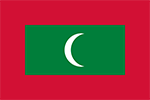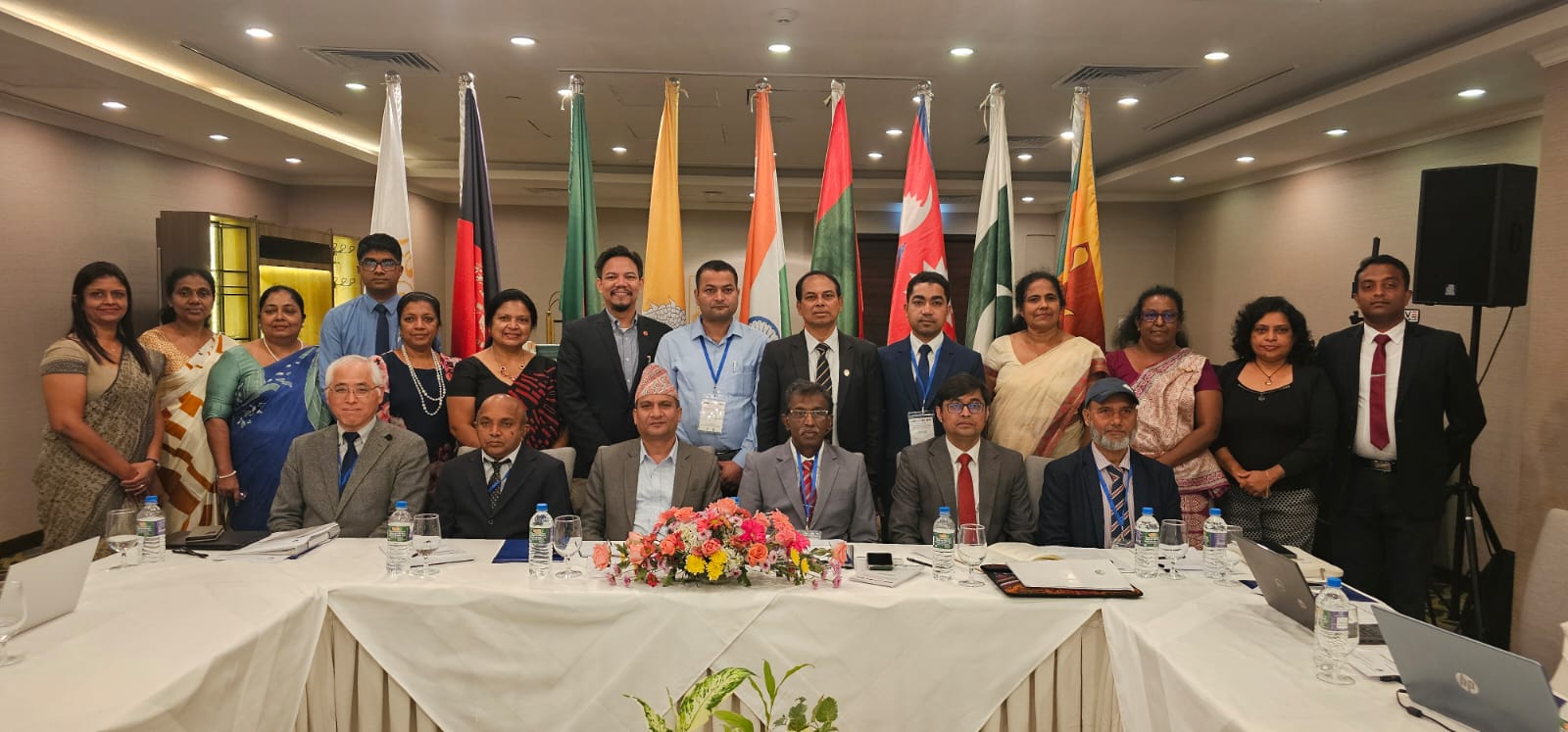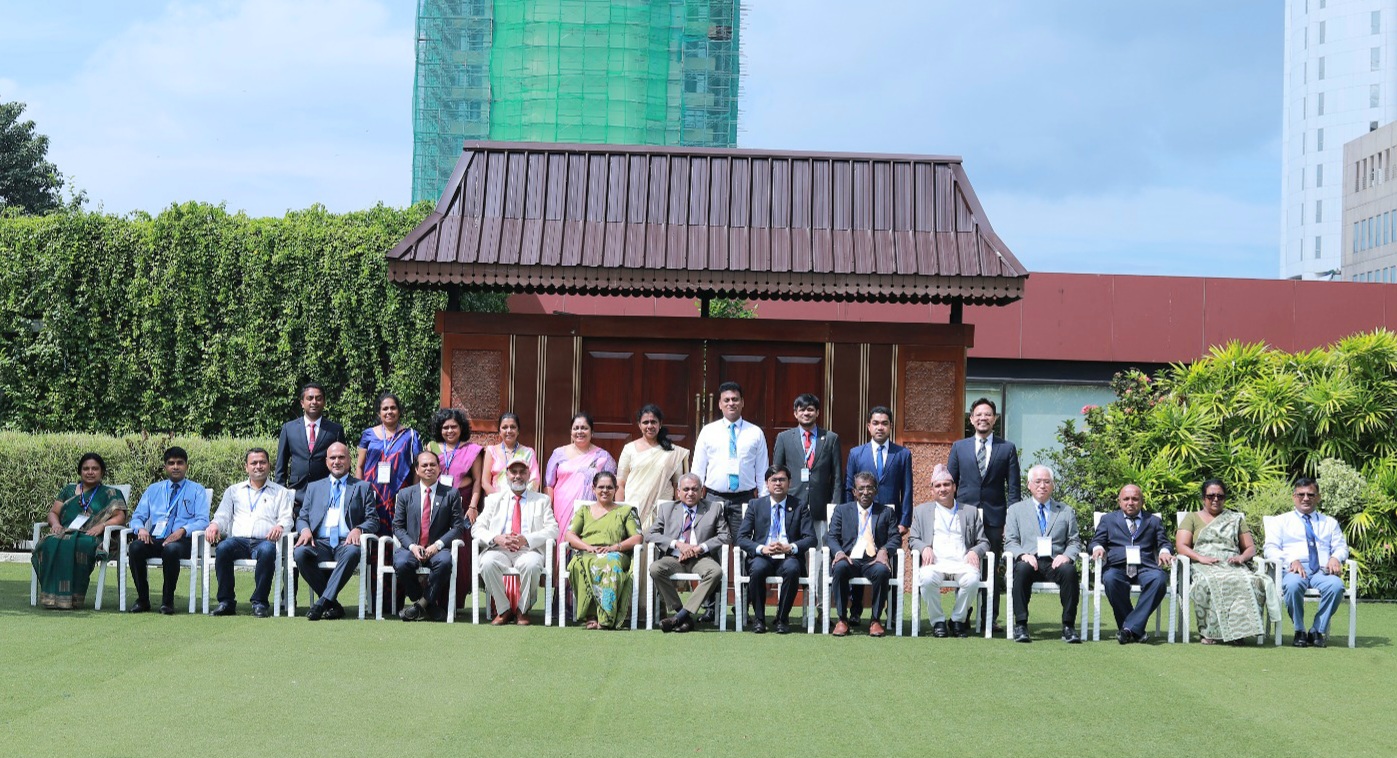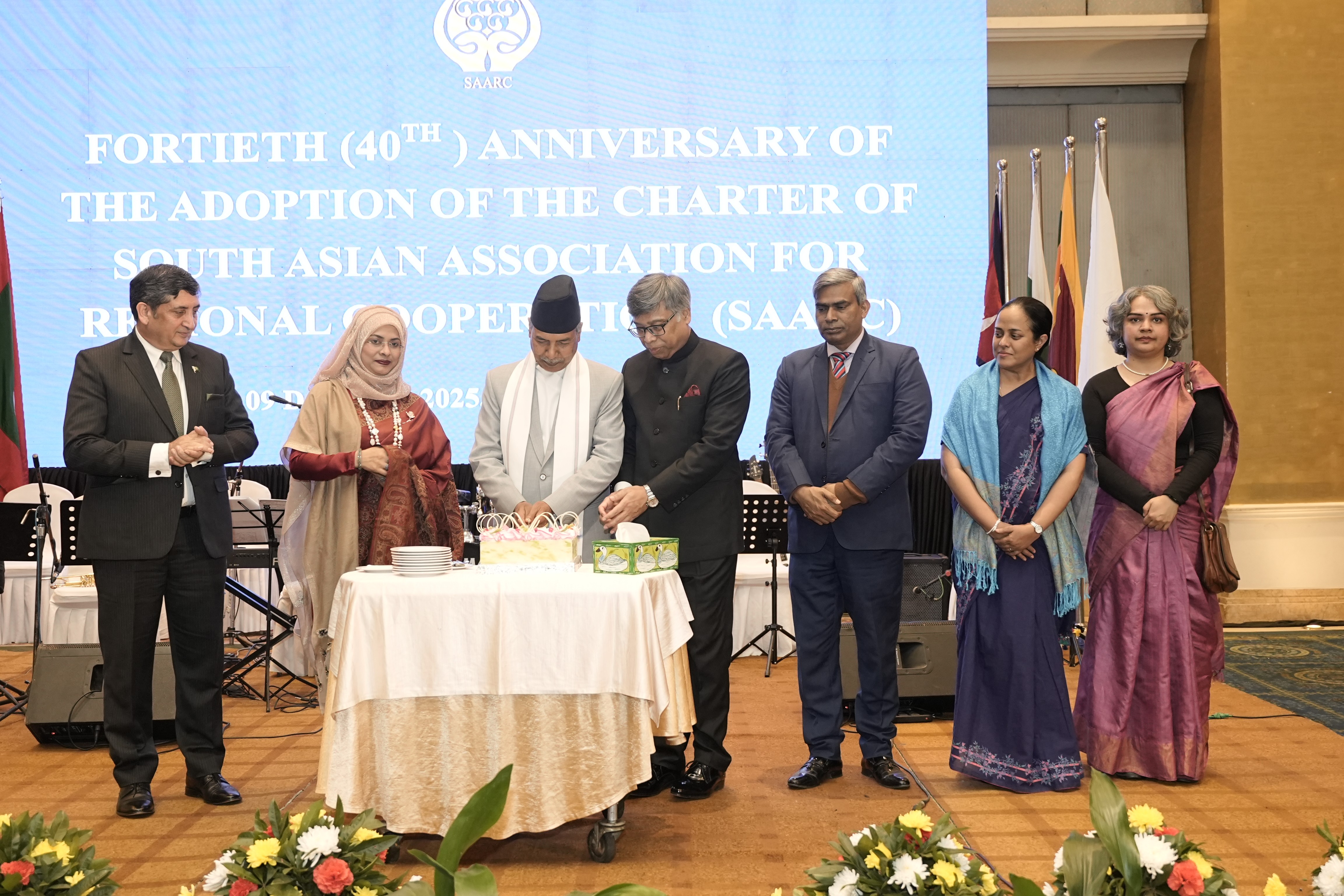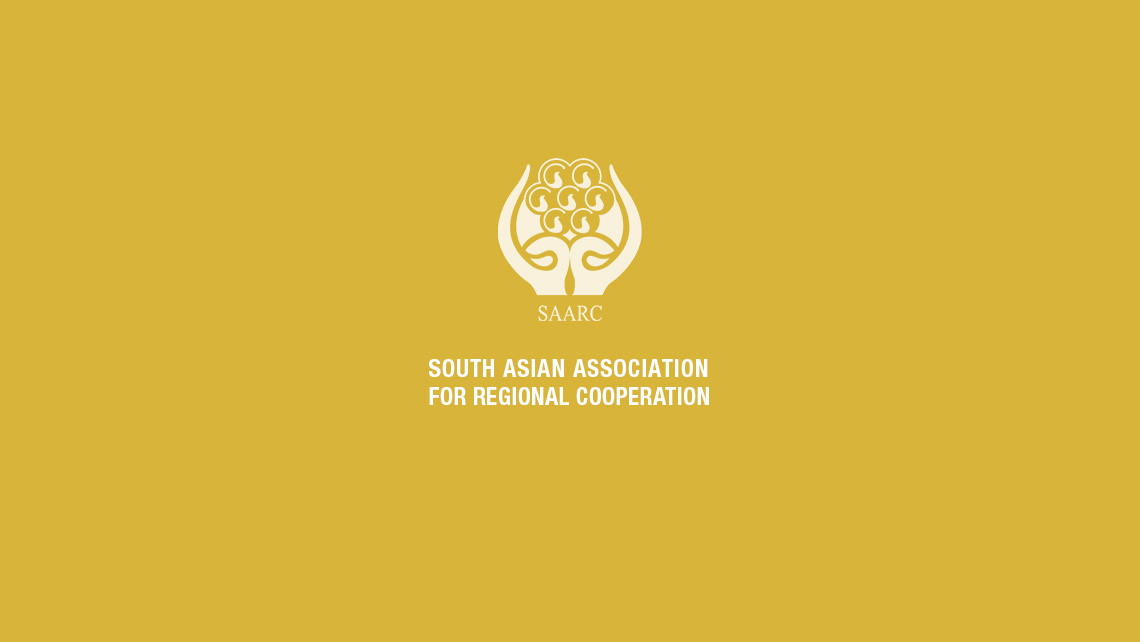Ninth Meeting of SAARC Chief Veterinary Officers’ (CVOs) Forum was held on Thursday (11 December 2025) in Colombo, Sri Lanka. The event was organized by the Agriculture and Rural Development Division of the SAARC Secretariat in coordination with the Ministry of Agriculture, Livestock, Land & Irrigation, Sri Lanka and SAARC Agriculture Centre (SAC), Dhaka. Chief Veterinary Officers (CVOs) Dr. Md. Abu Sufiun (Bangladesh), Dr. Rinzin Pem (Bhutan), Dr. Praveen Malik (India), Mr. Indunil Amaranath Jayawickrama (Maldives), Dr. Ram Nandan Tiwari (Nepal), Dr. S. Murtaza Hassan Andrabi (Pakistan) and Dr. K.K. Sarath (Sri Lanka) participated in the Meeting.
Addressing as the representative of SAARC Secretariat at the opening session, Mr. Tanvir Ahmad Torophder, Director (ARD & SDF), highlighted the collective initiatives and collaborations among the SAARC Member States enhancing the capacity in the veterinary sector of this region. Later, as representative of the Secretary General of SAARC, he formally opened the Meeting.
Dr. Harunur Rashid, Director, SAARC Agriculture Centre (SAC), in his remarks, stated that there is tremendous scope of collaboration among the Member States regarding Veterinary Services. He assured the Forum of SAC’s supports for all SAARC initiatives.
Dr. Hirofumi Kugita, World Organization for Animal Health (WOAH) Regional Representative for Asia and Pacific conveyed his appreciation to the SAARC Secretariat, SAC and the Government of Sri Lanka for organizing and hosting the meeting. He conveyed commitment for the supports from WOAH for the initiatives taken by the SAARC. Mentioning the priority areas like PPR, LSD, EpiNet, Dr. Kugita emphasized on the possible collective mechanism and ways to work together.
As the representative of the Food and Agriculture Organization (FAO), Mr. Scott Newman emphasized on the sustainable food production and biosecurity with controlling animal diseases in the South Asian Countries in coordinated manner. Mr. Scott, mentioning action plan and upcoming activities of FAO, expressed his willingness and expressed possibility of connecting the FAO activities to the initiatives of SAARC.
With participation from Chief Veterinary Officers of the Member States, the Forum rigorously discussed relevant agenda, took important decisions relating to veterinary activities & services and chalked out plan for upcoming years. The meeting concluded with the strong appeal and urge for collaboration for the welfare of SAARC region.
11 December, 2025





